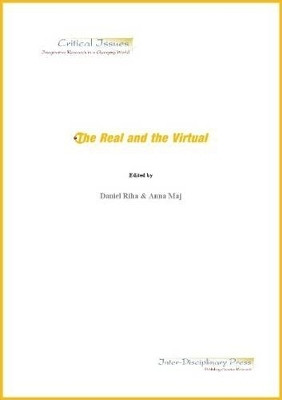The Real and the Virtual: Critical Issues in Cybercultures(English, Electronic book text, unknown)
Quick Overview
Product Price Comparison
The papers in this volume reflect the debates that progressed during the 4th Global conference on Cybercultures: Exploring Critical Issues, held as a part of Cyber Hub activity in Salzburg, Austria in March 2009. The edited draft papers make up a snapshot for the actual publishing. This multi-disciplinary conference project is a successful reborn of the 2003-2005 conferences held previously in Prague in the frames of the ID.net Critical Issues research project. Being a contemporary dominating cultural paradigm, cyberculture is an important subject for a wide range of researchers representing various disciplines. Thus, the idea of interdisciplinary exchange of knowledge through presenting results of diversified research projects seems to be crucial for their further development at both local and global levels. The research problems connected with cyberculture (or rather cybercultures) nowadays are those arising in the field of philosophy, psychology, sociology, culture, media and game studies, IT studies, engineering, design and law.One of the fundamental topics raised during the conference was the issue of access analysed at various levels, especially users' access to information and technology with regard to the notion of diversified competencies, knowledge and disabilities but also accessibility of the content and interface. The discussions also concerned the question of user's involvement in the process of development of technologies and devices, client's incorporation into the creative process and the idea of user-friendly interfaces as well as their implementation. The issues were elaborated on with reference to the problematics of control gaining, maintaining and lack of control as associated with privacy and its loss. This subject implies ideas of control over the dispersed and decentralised system of the Net itself but also of the content distribution in the context of Web 2.0 architecture and cultural trend of sharing. Moreover, these areas provoked questions on changes in education and the increasing need to provide cyber-education for various groups of society in view of their specified profiles.The necessity to broaden the abilities of an average user and the demand to constantly increase teachers' competencies are the challenges for educational systems. These problems were analysed with reference to interesting local examples of different forms of implementation of new ideas and methods of creative teaching of media and through media, i.e. with the use of 3D environments, games, machinima and social networking websites.


